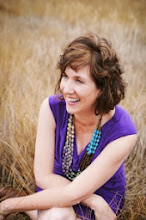In My Words: Balance, Balance, Keep Your Balance
I'm mulling over blog topics last night with my husband. Our conversation went like this:
Me: Maybe I'll post about how writing affects the family.
My husband: That would be a great idea!
OK, then. Glad he had an opinion.
My writing life--my professional life--frustrates my family at times. Not all the time. At least, I don't think so. Of course, I can't ask any of them because they're all in bed while I finish this blog post.
Sigh.
Here's the problem: I work from home.
Yes, there are so many advantages to working from home. That whole no-commute-can-stay-in-my-jammies-thing? Kinda nice on the days that the deadlines gang up on me.
And when everyone else is gone--at school or at work away from home--I can go to my office and get a lot accomplished, writing-wise. And even throw in the occasional load of laundry.
Nice.
But eventually my family comes home. They are no longer working. And sometimes--oftentimes--I still am. This is when frustration kicks in.
Believe me, I try, try, try to walk away from the computer. (Please notice the multiple "trys.") Just because school is over for my 10-year-old doesn't mean the countdown to my deadline stopped ticking. And when my husband comes home, he leaves work at his office. Yes, he may have a few things to finish up on the computer, but for him work and home are separate entities.
For me? Work and home are one and the same.
And therein lies both my advantage and my frustration.
Problem: How to balance being a stay-at-home mom-work-from-home-woman?
Answer: I don't know. You tell me.
Sorry. Although I will take any suggestions.
For me, it is all about balance. I love the photo I found for this blog post. I'm fascinated by that rock balancing on that other rock. I mean, it just shouldn't be able to do that.
And that's how I feel about my life: I just can't do it.
But I want to. And I will.
What I have to remember is this: Finding balance is not a one-time thing. (This is where that photo fails to capture truth.) In real life, balance is more like walking across a tightrope, with constant adjustments in position required to make it safely across to the other side.
Some days I manage to balance real life (my family) with my writing life. I meet my deadlines and I'm an available wife, mom and friend. Other days? Not so much. I go to bed with a niggling sense of dissatisfaction.
One thing I know is this: I won't quit. I'll adjust and adjust some more until I get it right for the next day. And the next.
In Your Words: Have you found the balance you need for your life priorities? What helps you be available for both your real life and your writing life?
Labels: Beth K. Vogt, competing priorities, finding balance, In My Words, real life versus writing life
 In Others' Words
In Others' Words

























 Follow Me on Twitter
Follow Me on Twitter



